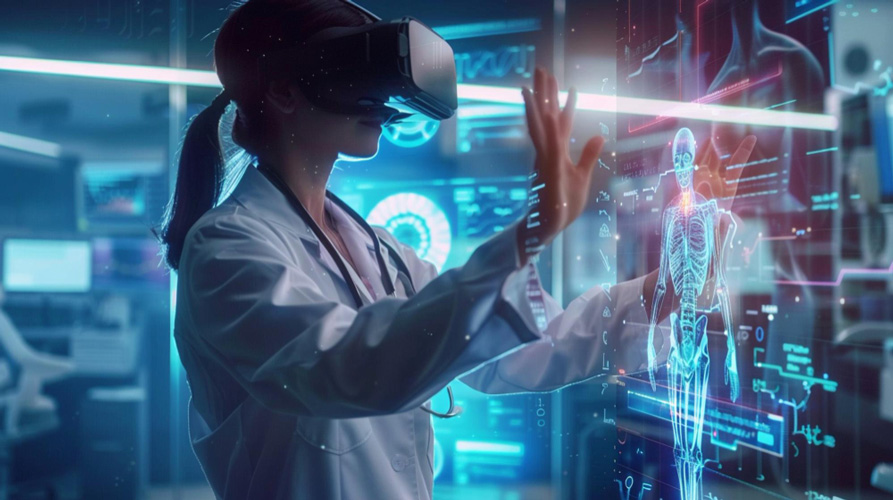The Future of Nursing: A Global Perspective
The nursing profession stands at a pivotal moment, poised for transformation as we move further into the 21st century. Across the globe, nurses are becoming increasingly central to healthcare delivery, public health initiatives, and patient advocacy. With rapid advancements in technology, evolving healthcare needs, and shifts in global demographics, the future of nursing is set to be dynamic and impactful. Let’s explore some key trends and developments that will shape the future of nursing worldwide.
1. The Rise of Technology and AI in Nursing
Technology is reshaping every aspect of healthcare, and nursing is no exception. From electronic health records (EHRs) to telehealth, and artificial intelligence (AI), nurses are embracing new tools that enhance patient care and streamline workflows. AI-powered systems are assisting nurses in diagnosing conditions, predicting patient outcomes, and personalizing treatment plans. As these technologies evolve, nurses will need to acquire new skills to integrate these tools effectively into their practice.
Telehealth Expansion: The COVID-19 pandemic accelerated the adoption of telehealth, and it’s here to stay. Nurses are now delivering care remotely, providing consultations, monitoring chronic conditions, and offering support through virtual platforms. This expansion not only increases access to care but also presents new opportunities for nurses to work flexibly across different regions and even countries.
2. Addressing Global Health Challenges
The world is facing unprecedented health challenges, including aging populations, chronic disease epidemics, and emerging infectious diseases. Nurses, as frontline healthcare workers, are crucial in addressing these issues.
Chronic Disease Management: As the prevalence of chronic diseases like diabetes, heart disease, and cancer rises, nurses are taking on greater responsibility in managing these conditions. This includes patient education, lifestyle counseling, and coordination of care to prevent complications and hospitalizations.
Global Health Initiatives: Nurses are increasingly involved in global health initiatives, tackling challenges such as maternal and child health, vaccination programs, and combating infectious diseases like HIV/AIDS and malaria. Their role in promoting health and preventing illness on a global scale is becoming more prominent.
3. The Growing Importance of Specialized Nursing Roles
As healthcare becomes more complex, there is a growing demand for specialized nursing roles. Advanced practice nurses (APNs), nurse practitioners (NPs), clinical nurse specialists (CNSs), and nurse anesthetists are taking on leadership roles in healthcare teams. These professionals are not only providing direct patient care but are also involved in policy-making, research, and education.
Nurse Leadership and Advocacy: The future will see more nurses stepping into leadership positions, influencing healthcare policies and practices at local, national, and international levels. Their unique perspective, rooted in patient-centered care, will be invaluable in shaping a more equitable and effective healthcare system.
Interdisciplinary Collaboration: The future of healthcare is collaborative, with nurses working alongside physicians, pharmacists, social workers, and other healthcare professionals to provide holistic care. This interdisciplinary approach ensures that all aspects of a patient’s health are addressed, leading to better outcomes.
4. Education and Lifelong Learning
With the rapid pace of change in healthcare, continuous education and lifelong learning are becoming essential for nurses. The traditional nursing education model is evolving to incorporate new technologies, evidence-based practices, and global health perspectives.
Online and Hybrid Learning: The rise of online education has made it easier for nurses to pursue advanced degrees and certifications while working. Hybrid learning models, which combine online and in-person training, are also gaining popularity, offering flexibility and hands-on experience.
Focus on Cultural Competence: As nurses work in increasingly diverse environments, there is a growing emphasis on cultural competence in nursing education. Understanding different cultural practices and beliefs is crucial for providing effective and respectful care to all patients.
5. The Global Nursing Shortage and Workforce Challenges
Despite the increasing demand for nursing services, many countries face a significant nursing shortage. The World Health Organization (WHO) estimates a global shortfall of 5.9 million nurses. This shortage is driven by factors such as aging populations, inadequate nursing education infrastructure, and the migration of healthcare workers.
Recruitment and Retention: To address the nursing shortage, healthcare systems must focus on improving working conditions, offering competitive salaries, and providing opportunities for professional growth. Recruitment efforts must also target younger generations, emphasizing the rewarding and diverse nature of a nursing career.
International Mobility: The global shortage has also led to increased mobility of nurses, with many professionals seeking opportunities abroad. While this can alleviate shortages in some regions, it can exacerbate them in others, highlighting the need for international cooperation and policies that ensure fair distribution of nursing resources.
Conclusion: A Future of Opportunity and Challenge
The future of nursing is bright, with numerous opportunities for growth, innovation, and impact. However, it is also fraught with challenges that must be addressed to ensure that nurses can continue to provide high-quality care to populations around the world. By embracing technology, advancing education, and advocating for better working conditions, nurses will continue to play a vital role in shaping the future of global healthcare.
The world will increasingly rely on the skills, compassion, and expertise of nurses. As they adapt to new roles and responsibilities, nurses will remain at the heart of healthcare, providing care that is not only scientifically sound but also deeply human.


